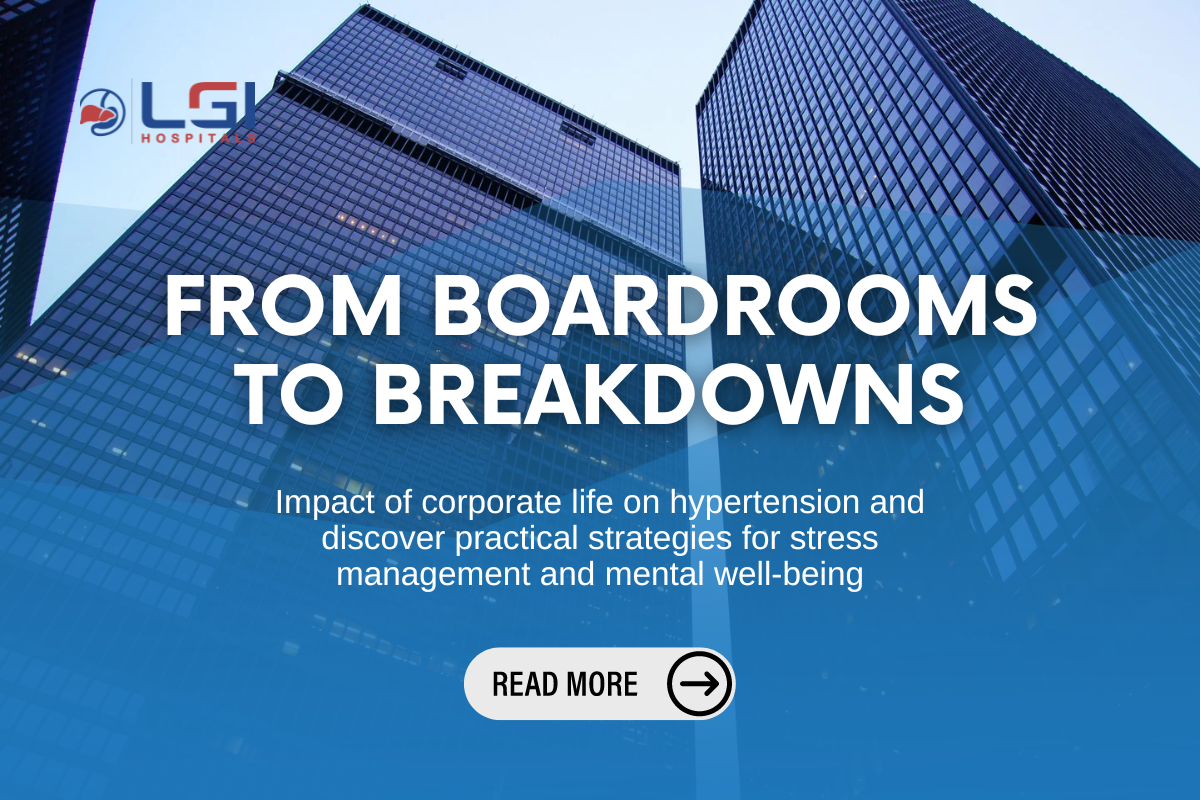In the relentless drive for success in today’s corporate workspace, professionals often face immense pressures that can lead to hypertension and chronic stress. A recent example is John Santora, who took the helm at WeWork amid significant challenges. (WeWork) (Commercial Observer).
Research by Gi Group suggests a concerning link between work and mental health. They found that nearly half, approximately 42.5% of people in corporate India, experience anxiety disorders or depression. This reinforces the need for addressing work stress to promote mental well-being.
Corporate Workspaces and Hypertension
Corporate environments can be breeding grounds for stress due to high expectations, long hours, and constant change. This stress often manifests as hypertension, a condition that, if unmanaged, can have serious health consequences. Santora’s leadership through WeWork’s restructuring highlights the pressures executives face and the importance of effective stress management.
Learning from Real-World Examples
Santora’s journey underscores the value of supportive work cultures and flexible working arrangements in mitigating stress. As he guides WeWork toward a stable future, his focus on maintaining a balanced approach to leadership offers valuable insights for professionals dealing with similar pressures.
The Impact of Corporate Life on Hypertension
Corporate environments, characterized by high-pressure deadlines, long working hours, and competitive demands, can significantly elevate employee stress levels. This constant pressure takes a toll on employees, not just mentally but also physically. Over time, unmanaged stress can lead to a dangerous condition known as hypertension, or high blood pressure. Left unchecked, hypertension can significantly increase the risk of serious health problems, potentially requiring hospitalization.This chronic stress is a major contributor to hypertension, affecting physical and mental health. According to a study by the Indian Council of Medical Research (ICMR), work-related stress contributes significantly to health problems, with an estimated 20% of Indian professionals suffering from hypertension. In India, stress is a factor in 72% of health issues among professionals, leading to increased healthcare costs and productivity losses for companies.
Tips to Manage Stress at Corporate Workspace
1. Recognizing Stress Triggers at Work
Identify common stressors such as tight deadlines, excessive workload, and interpersonal conflicts. Awareness empowers professionals to proactively manage these triggers and reduce their impact on overall well-being.
2. Promoting Work-Life Balance
Prioritize time management and set boundaries between work and personal life. Balancing professional commitments with personal relaxation and hobbies helps mitigate stress and maintain a healthier lifestyle.
3. Regular Health Check-Ups
It’s essential to incorporate regular health check-ups into your routine to monitor vital health parameters, including blood pressure and overall cardiovascular health. LGI Hospital offers comprehensive medical and diagnostic services, such as Medical Gastroenterology and Pathology, to help you keep track of your health and address any emerging issues early.
4. Cultivating Supportive Relationships
Build a network of supportive colleagues and mentors within the organization. Sharing experiences and seeking guidance from trusted peers can provide emotional support and enhance resilience against workplace stressors.
Professionals for Healthier Futures
Tracking Good Gut Health: Monitoring your digestive health is equally important. Utilize services like Surgical Gastroenterology and Radiology provided by LGI Hospital to ensure that your gut health is in optimal condition. Early detection and management of digestive issues can significantly reduce stress and improve overall quality of life.
By integrating these strategies and leveraging professional healthcare services, busy professionals can maintain a balanced and healthy lifestyle, leading to enhanced productivity and a better quality of life.

